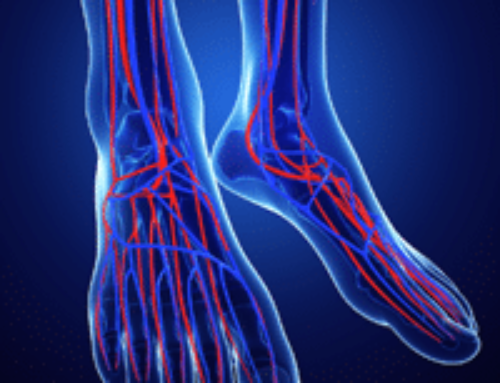What are Statins?
The U.S. National Library of Medicine defines statins as drugs that are used to lower cholesterol levels. Your body needs cholesterol to work properly – synthesize membranes, hormones, absorb vitamins and help digestion. But, too much cholesterol in your blood can form plaques on the walls of arteries. This gradual plaque growth, overtime, can affect blood flow to organs or can lead to plaque rupture causing sudden loss of blood supply to organs. Statins work by blocking an enzyme in the liver which is a step in the production pathway of cholesterol.
The importance of Cholesterol Levels
The normal total cholesterol level should be below 200 mg/dL and the LDL (bad) cholesterol below 100 mg/dL. We have moved away from targeting cholesterol levels with therapy and dosing as cholesterol is only one among several risk factors for atherosclerosis (plaque).
The American College of Cardiology and American Heart Association recommend using the 10-year Atherosclerotic Cardiovascular Disease (ASCVD) risk calculator to guide use of statins as preventive therapy. Patients with prior heart attacks, stroke, known vascular disease, very high LDL cholesterol (> 190 mg /dL) and diabetes benefit from statins. In the remaining group of patients, high intensity statin therapy (> 50% decrease in LDL cholesterol) is recommended when the ASCVD risk is > 7.5% and moderate intensity statin therapy (30-50% decrease in LDL cholesterol) is recommended when the ASCVD risk is 5-7.5%.
How do Statins Work?
Statins work in two ways to reduce your cholesterol levels:
- Statins decrease the production of cholesterol by the liver. They are able to do this by inhibiting an enzyme (HMG-CoA reductase), which is a rate limiting step in the production of cholesterol in the liver.
- Statins may help reabsorb existing cholesterol in plaques decreasing their size or preventing further growth inside the arteries.
The various statins on the market have some differences among them. The most important differences are in the extent of decrease in LDL cholesterol, lipid solubility and drug interactions. The drug interactions primarily relate to sharing the cytochrome P450 enzymes in their metabolic pathways (CYP2C9, CYP3A4) and should be checked when new prescriptions are added.
Are Statins a Lifelong Commitment?
You just need to get your cholesterol levels down, and then you can stop taking statins – right? Unfortunately, for sustained benefit, you will need to take them long-term or in other words lifelong, as the risk factors that contribute to atherosclerosis persist, for the most part, and the atherosclerotic process has already begun. Also, it doesn’t take more than a week for the cholesterol levels to rebound to pre-treatment levels.
Do Statins have Side Effects?
Like most medications, statins do have some side effects. Despite all the negative wrongful publicity, statins are one of the most studied drugs. They have been evaluated in a large population over several years in multiple studies.
The less serious side effects are muscle aches, headaches, insomnia, memory loss, diabetes, diarrhea and nausea. The serious adverse effects are rare; including hepatic (liver) dysfunction and rhabdomyolysis (breakdown of muscles). We check liver function and CK (a muscle enzyme) 1-2 months after starting a statin. Overall, they are safe drugs with an excellent margin of benefit.
When considering whether statins are right for you, your doctor will take into consideration if you have other health issues or are taking medications that interact with statins.
Are Statins the best way to Lower My Cholesterol? I would prefer to make changes in my diet.
Atherosclerotic process starts at a very young age, as early as 5 years. The process progresses at varying rates depending on the risk factors like diabetes, high blood pressure, high cholesterol, smoking, age and sex. The answer to the often-asked question “can I trying changing my diet instead” is an emphatic yes. Everyone prescribed a statin should try to make lifestyle changes including a healthy diet, regular exercise (does not have to be at the gym – brisk walking for 20 minutes 5 days a week), less red meat, high fiber diet and less sugar intake. But, I think the benefit of taking a statin AND making the necessary lifestyle changes would provide the most benefit when dealing with a process that is ongoing throughout your life.




